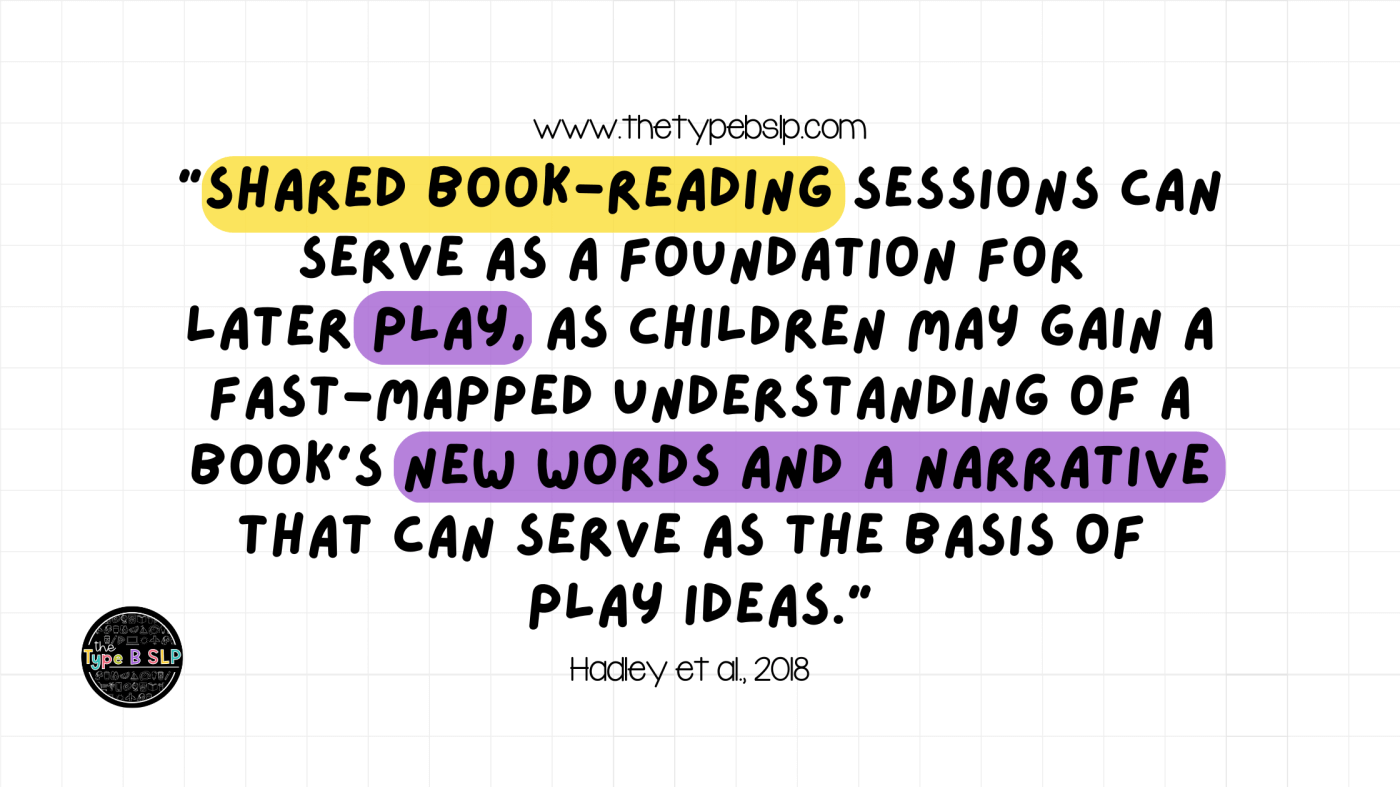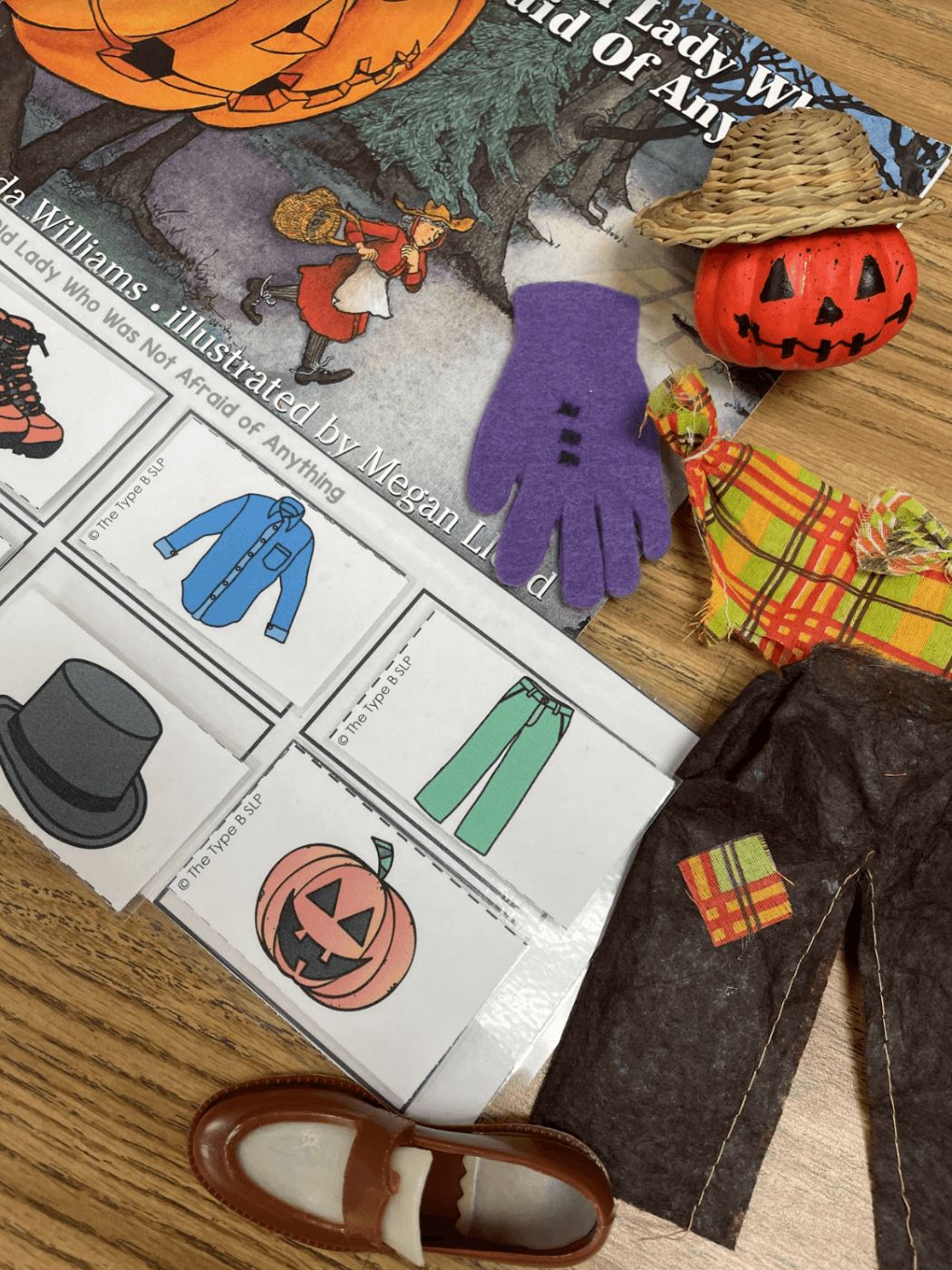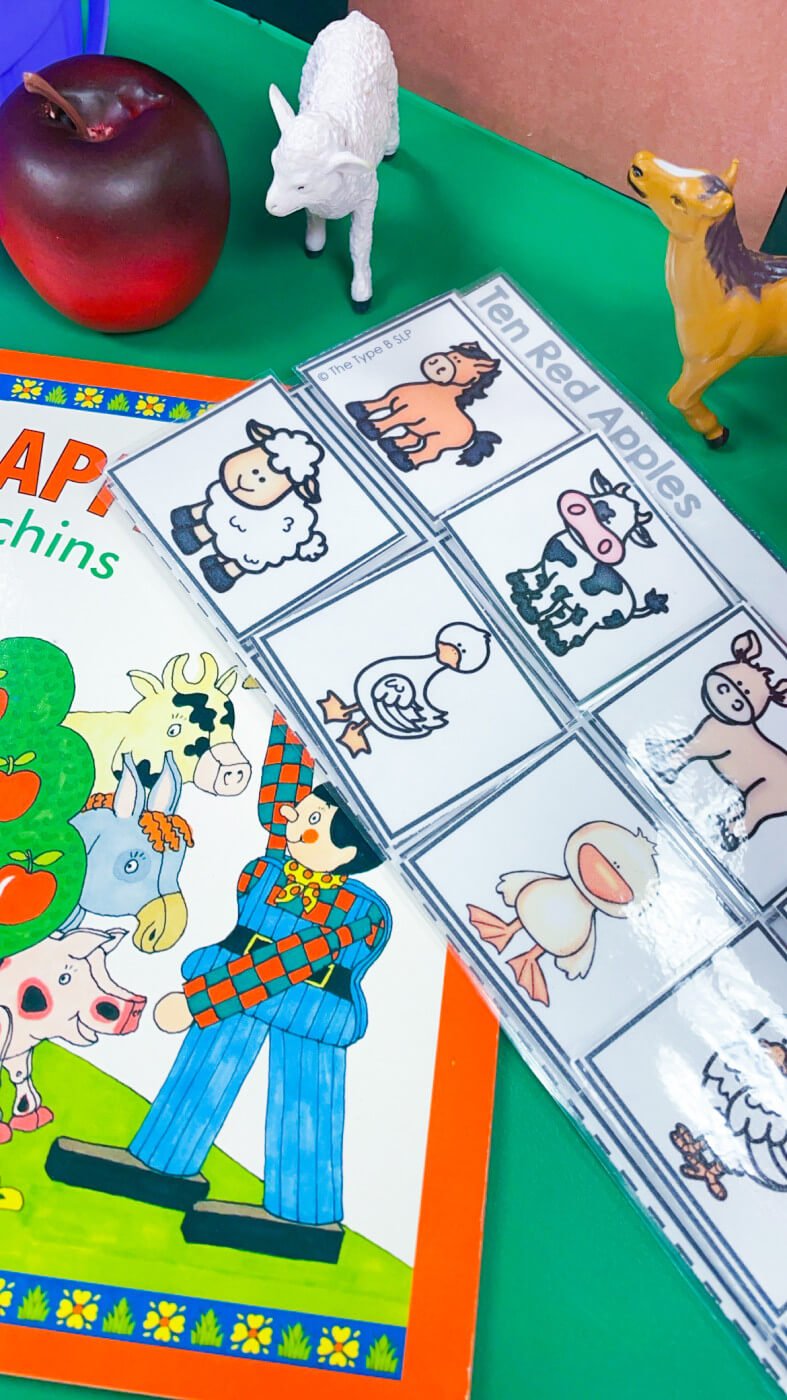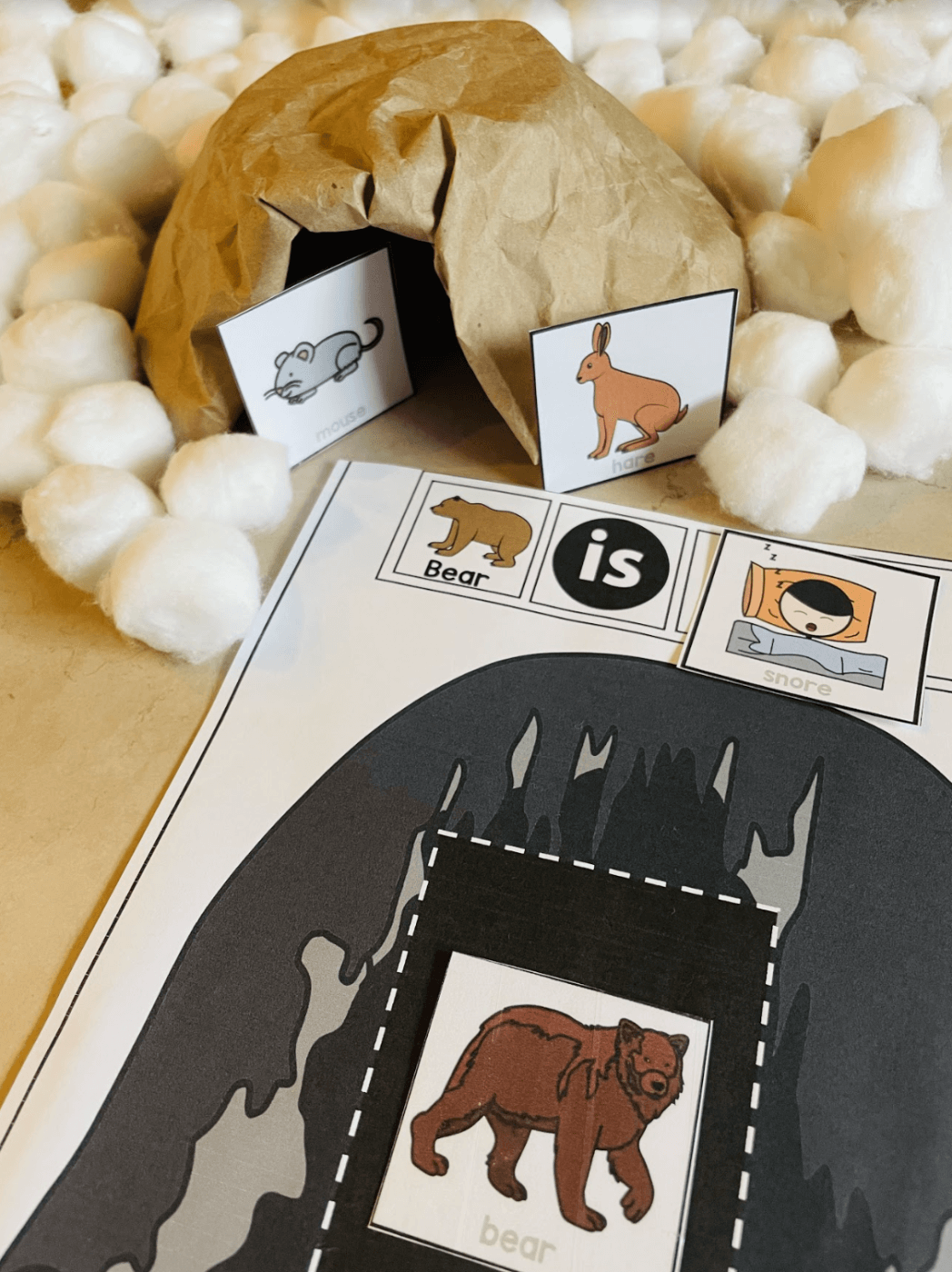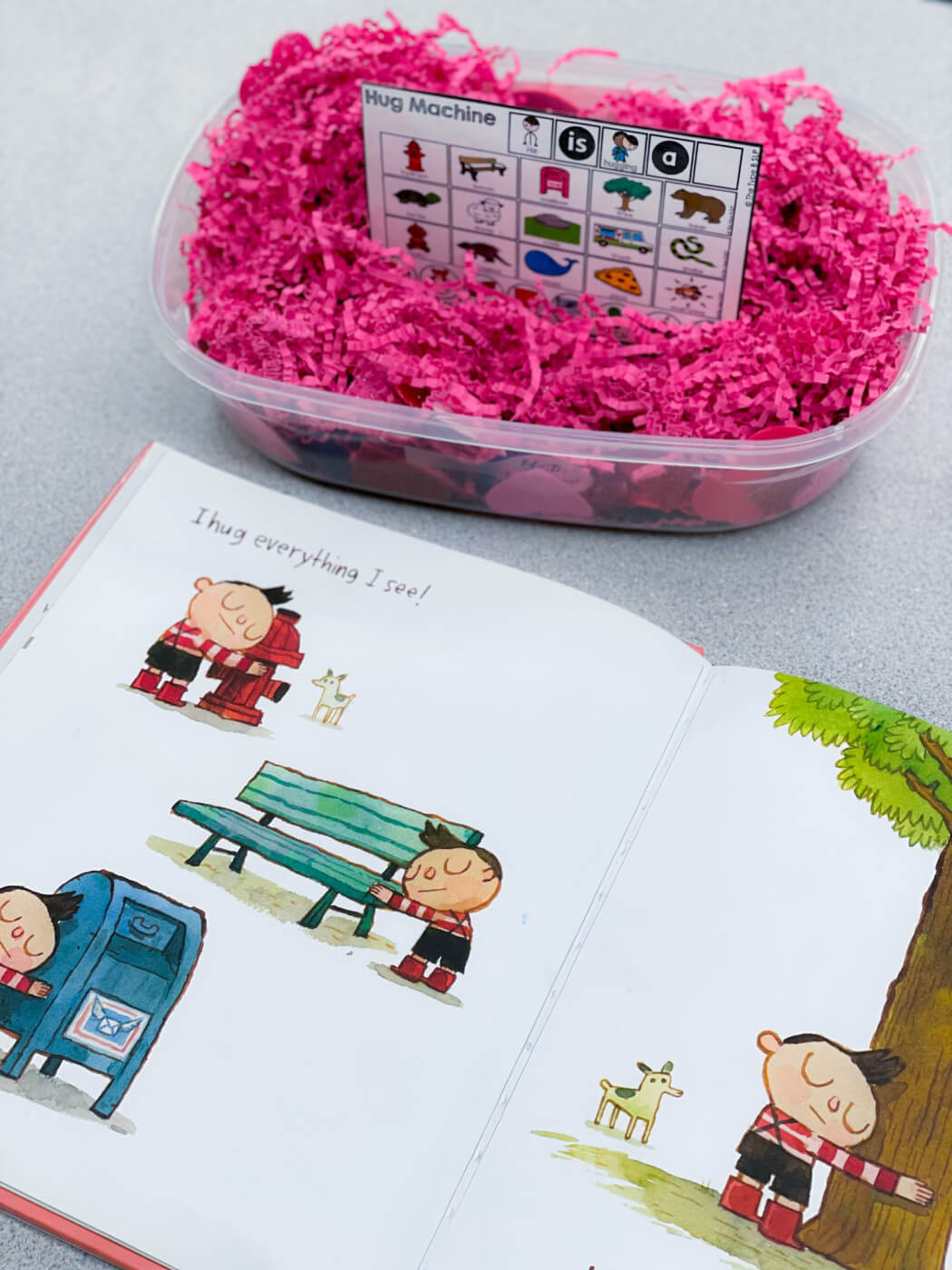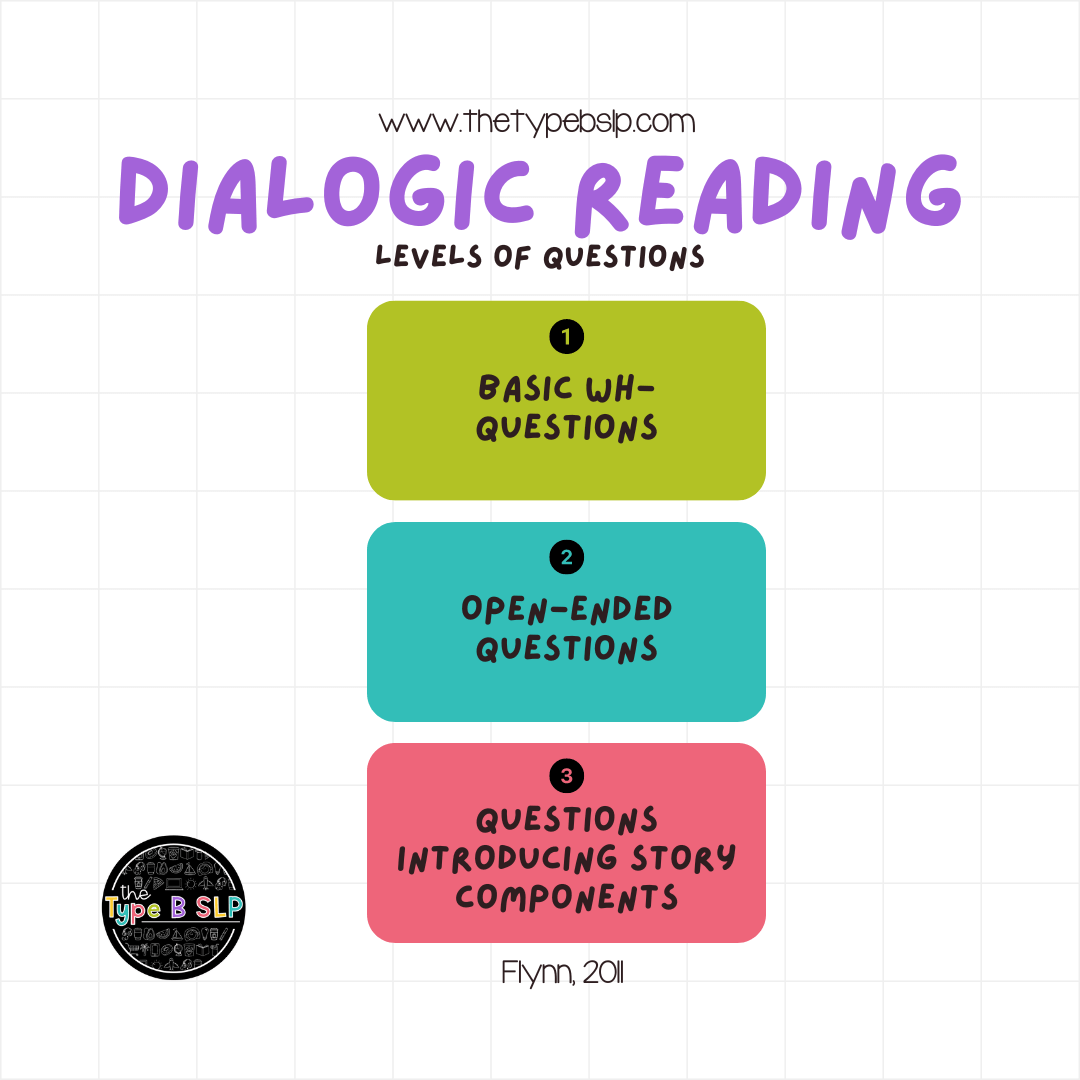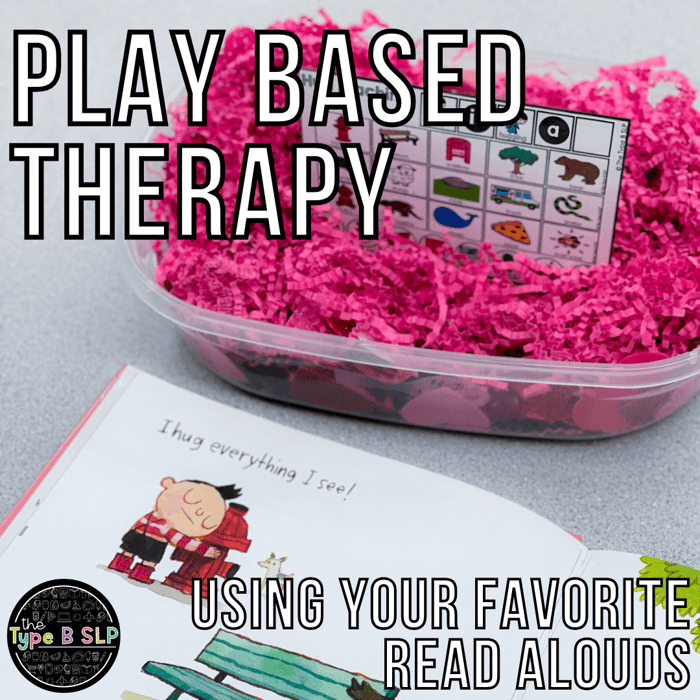
Play-Based Therapy Using your Favorite Read Aloud Books!
We've already talked about how visuals make a huge impact on our students and their vocabularies - so, in this post, I'm going to share my tips for using them to support your favorite read alouds and guided play!
Visuals can increase your students' engagement and bring your materials to life!
I don't think it will surpruse anyone when I say: I LOVE using books in speech therapy! As you may know, I am constantly sharing my favorite books and expansion activity ideas on my blog, Instagram, and in my emails. I wanted to jump into some research to show you WHY I feel using books with our early language kids is SO important.
Want to nerd out with me for a minute?
I recently read a really great article from Wasik & Bond (2001) titled Beyond the Pages of a Book: Interactive Book Reading and Language Development in Preschool Classrooms that exhibits the importance of shared book reading for learning decontextualized language and vocabulary (decontextualized = language that is used to convey new info on a topic where the listener has limited experience with the context of the information!). Decontextualized language skills, to summarize, has been shown to be related to later literacy skills (decoding, understanding story narratives, etc.). So why am I talking about this??
This article from Wasik & Bond (2001) showed that children who were engaged in more high-level conversations and dialogue about the story (vs. focus on low level utterances and simple yes/no questions) performed better on vocabulary and language measures! (makes sense, right?)
Soooo how'd they achieve this?? Using hands-on objects and specific activities related directly to the story that encompassed the target vocabulary so the children could "encounter the focal vocabulary multiple times and in multiple contexts beyond the pages of the book." ...We already know our kids need multiple exposures to words!
So let's talk about how we can utilize some of these ideas to support the use of guided play with our book reading.
There's so many visuals to choose from for our sessions. For today's post, I'll describe two of my favorite ways to integrate visuals - story objects and sensory bins. They are so effective at facilitating play and getting lots of speech/language practice!
Story Objects
Students LOVE story objects - they are so engaging and are clear referents to our read alouds.
I like to grab my book companion visuals to give me a ton of target vocabulary practice, since so many of the vocabulary words are included in the visuals! However, I ALSO like to mix these with other story objects such as:
👉 figurines & mini objects- such as apples and an "orchard" for the book "Ten Red Apples", arctic animal figurines for the book "Ten on the Sled"
👉toys - such as a little toy house with swinging doors for "Inside a House that is Haunted," farm animals and a barn for the book "No Sleep for the Sheep,"
👉real life items- such as items from around my therapy room or office such as a backpack, calculator, stapler to use alongside the book "Time for School Mouse" or "The Old Lady Who Swallowed Some Books"
While you're reading, you can introduce these story objects to play and build on story elements, such as characters, setting, action, or problem.
I find story objects to be super helpful in addressing speech/language concepts, such as:
✨Sequencing✨- "First goat, then chicken"
✨Spatial concepts✨- "The bear is in the cave"
✨Expanding utterances & syntax✨- "Frog wants the small tree"
✨Fringe vocabulary✨- "That's the train conductor!"
The best part: when you have finished reading, your students have laid the groundwork for child-led play with your story objects, increasing repetitions and learning! 🎉
Sensory Bins
Another favorite in my speech room is sensory bins! Sensory bins are containers with visuals that engage the senses, such as sight, touch, and/or sound.
As you choose your read aloud, you can identify sensory bin fillers that reference story elements and help to build upon your students' knowledge.
These fillers can include:
👉 story objects - such as leaves or farm toys for the read aloud, Little Blue Truck
👉 engaging textures/colors/sound fillers that emphasize the language opportunities - such as crinkle paper, rice, or cotton balls to make snow for the read aloud, Bear Snores On. Or real life sand, brown rice, shells, crab mini erasers to use alongside the book, "A House for Hermit Crab."
*Also, just a reminder that your sensory bin does NOT need to be a clear container! Here I crumbled up a brown paper bag to make a bear cave "container"!
There's lots of different ways to use a sensory bin! Some ideas for you:
💡 When meeting an animal in the story, the student can greet the animal figurine and put it in the sensory bin
💡 When meeting a new character in the story, the student can find a character picture card in the sensory bin and identify it on a vocabulary board
💡 As action unfolds, the student can find the next picture card and place it on a sequencing board
There's truly so much that can be done with sensory bins to support read alouds!
Pro tip: Dialogic ReadingFeeling stuck about how to implement visuals, such as story objects and sensory bins, in a meaningful way? I love to use strategies from dialogic reading. Dialogic reading is an interactive technique based on the extensive research of Grover J. Whitehurst, Ph.D. This technique encourages adults to prompt children with questions and engage them in discussion while reading to them. A traditional implementation of dialogic reading involves repeatedly reading the same book and interacting around three levels of questions. (Flynn, 2011)
Level 1 - basic wh-questions - "What type of feet does this animal have?" Level 2 - open-ended questions - "What is happening in this part of the story?" Level 3 - questions that introduce text features, story components & inferencing - "Who was the main character?", "How would you feel if that happened to you?" These levels are SO helpful to have in mind while I'm using visuals - they provide some structure to my sessions and support child-led play! I hope they're helpful for you, too! |
How do you like to implement play-based therapy activities in to your sessions? Are you more of a story objects person or are you all about sensory bins?
Send me a message and share your favorites!
Looking for resources to help integrate combined read alouds and play into your sessions? Check out my Seasonal Book Companion Visuals for Speech Therapy: Hands-On Play Based Learning!
Abby
Seasonal Book Companion Visuals for Speech Therapy: Hands-On Play Based Learning
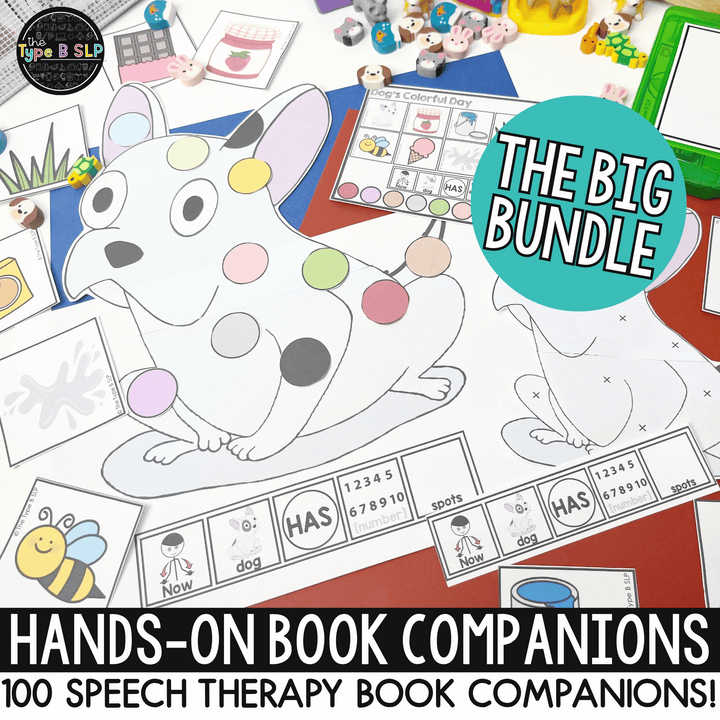
$45.15
$64.50
ONE HUNDRED Speech Therapy Book Companions! Are you looking for some super simple, easy prep book companions for your little learners? These quick prep book companions are great for the busy SLP. They include Evidenced based practices and strategies for read alouds for young learners,… read more

